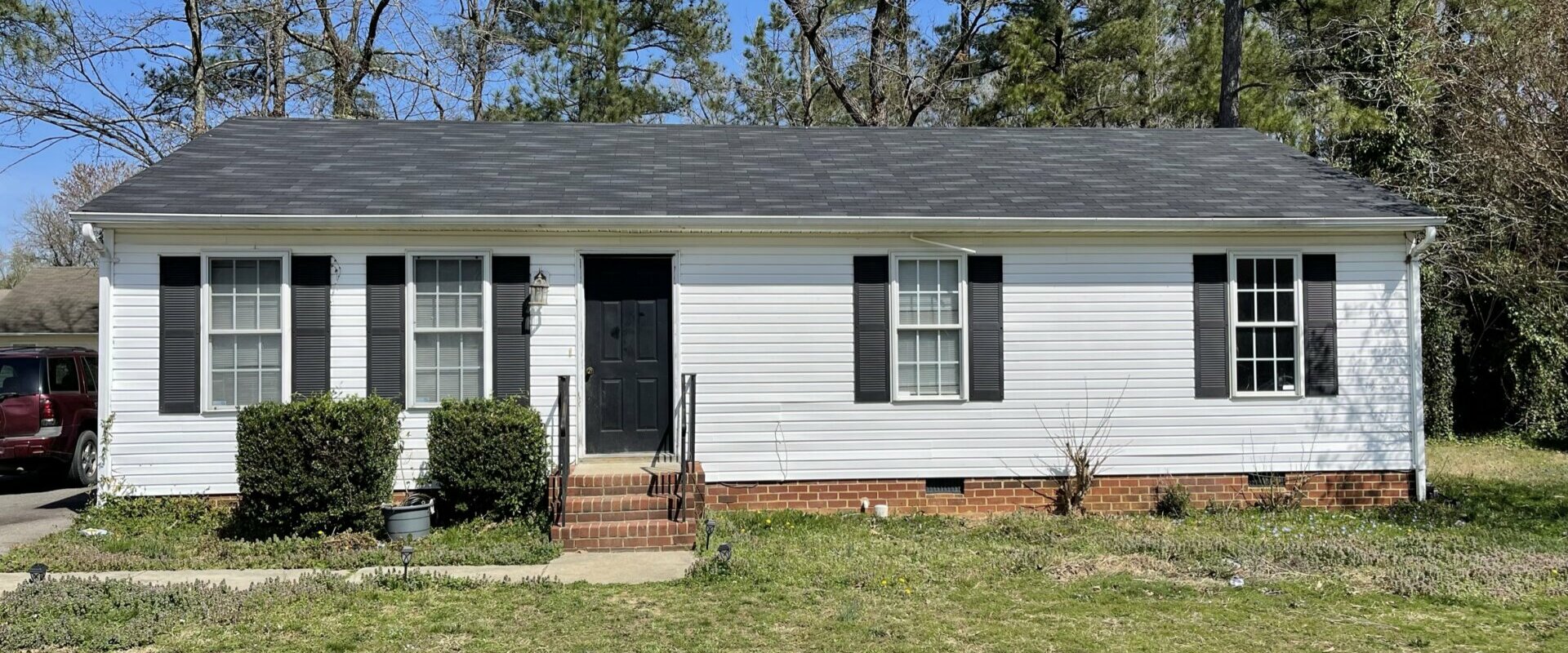Who Retains Ownership Of The House After A Divorce In Virginia?
In Virginia, when a couple divorces, house ownership is typically addressed in the divorce decree or property settlement agreement. In some cases, the court may order one spouse to buy out the other’s share of the house.
Alternatively, both parties can agree to sell the house and split any proceeds from the sale. Suppose only one party wishes to keep the house after a divorce in Virginia. In that case, they must be able to refinance into their own name and assume full responsibility for mortgage payments.
Under Virginia law, if there is an existing mortgage on the home, both parties remain jointly liable for repayment until it is refinanced. This means that even if one spouse moves out of the home and no longer makes payments, they are still on the hook for any unpaid debt.
When selling a house after a divorce in Virginia, it’s important to have an experienced real estate agent who understands how to navigate this complicated process. If possible, it’s best for both parties to work together throughout every step of selling a home during or after divorce proceedings.
Table Of Contents
1. Who Retains Ownership Of The House After A Divorce In Virginia?
2. Can I Keep My House During A Divorce In Virginia?
3. What Are The Financial Implications Of Selling Before Or After Divorce?
4. How To Split Equity And Mortgage Debt On The Sale Of A Home
5. Comparison Of Property Division Laws Across States
6. What Happens If You Cannot Afford To Pay Both Mortgages Post-divorce?
7. What Happens To The House In Divorce In Virginia?
Can I Keep My House During A Divorce In Virginia?

In Virginia, couples who are divorcing can decide to keep the house as part of their settlement agreement. The decision is ultimately up to the couple, but there are a few things to consider in order to determine if keeping the house is the best option.
First, each person must have sufficient financial resources available to maintain the home. This includes having enough money for mortgage payments, property taxes, insurance, and regular maintenance costs.
Additionally, it’s important to ensure that both parties are willing and able to take on these financial responsibilities. If one spouse wants to keep the house but cannot afford it or does not want the responsibility, then they may need to look for another solution such as selling the home or finding a new tenant.
Lastly, it’s important for both partners to consider what will happen if they have difficulty making payments down the road or decide that they no longer want ownership of the property. Even if one partner keeps the house during divorce proceedings in Virginia, they may still need to take steps such as refinancing in order to make sure that they remain financially secure.
Pros & Cons Of Selling The Marital Residence During Divorce
It can be hard to sell the home you shared while you’re getting a divorce, but it can also be helpful in some ways. On the plus side, selling the house lets everyone get their fair share of the equity and move on with their lives without having to worry about taking care of or handling a big asset.
It’s also a chance for both sides to start over and put money back into their future. The other side is that selling the marriage home during a divorce can be hard on the emotions because it means leaving a place that holds many memories.
Also, both sides have to talk about who will get what share of the money when they decide to sell. It’s also important to think about the fees that real estate managers and lawyers charge for selling a house.
It is essential for divorcing couples in Virginia to consult with an experienced attorney who understands how best to protect their rights and interests when selling a home during divorce.
How To Divide Debts And Assets In A Divorce Settlement
In Virginia, people who are getting a divorce have to figure out how to split their assets and debts as part of the divorce settlement. It’s important to know what kind of debt or assets each partner has, like a house or other real estate.
To determine who owns what, it’s best for both sides to make a list of all the assets and debts they accumulated during the marriage. It’s important to know who owns the land and who has the mortgage when it comes to real estate.
In general, both parties must agree on how the property will be sold or split if they are both named on the lease. If one partner owns the house and no one else does, that person must decide whether to sell the house or buy out the other partner’s share.
If you can’t agree on a price, you might need to have someone else look at it and tell you what it’s really worth. Another important thing is that everyone knows their rights and duties when it comes to paying off any debts that are still attached to the house before the sale goes through.
Impact Of Selling Your Home At The Time Of Divorce
In Virginia, selling a house can be hard when you are getting a divorce. It’s important to know how this can affect both of you, especially if you need to sell the house during the split.
The two people getting divorced may have to agree on who will keep the house and who will get the money from selling it. Also, whether they sell or keep the land, there may be tax consequences for both of them.
When you decide to sell your house, you should also think about how it might affect any alimony or spousal support payments. These choices could have long-lasting effects. Also, if one person is going to keep the house, they might need to refinance with a personal loan or get a new mortgage if they can’t make the payments on their own.
In the end, knowing all of these things is important if you want to sell your Virginia home during a divorce.
What Are The Financial Implications Of Selling Before Or After Divorce?

The financial implications of selling a house in Virginia before or after divorce can be significant. It is important for divorcing couples to consider the tax implications and other liabilities associated with selling a home, such as capital gains taxes, mortgage repayment costs, and estate planning.
For example, if the sale of the home results in a capital gain, each spouse may need to pay taxes on their portion of the gain. Mortgage repayment costs are also something to consider since any outstanding debts must be paid off to complete the sale.
Additionally, it is important to understand how estate planning will affect the sale of a home after divorce. Depending on how assets were divided prior to selling the house, one or both parties may be liable for any unpaid mortgages or other debts associated with the property.
Understanding these financial implications can help ensure that both parties are fairly compensated when selling a house during or after divorce proceedings in Virginia.
When Should You Sell Your Home During A Divorce?
When two people decide to get a divorce, deciding when to sell the house is one of the hardest things they have to do. Virginia couples who are getting a divorce should know that there are a lot of things to think about before making this choice.
It might be best for some couples to wait to sell their house until the divorce is official. This can help them escape more complicated legal issues and make sure that everyone gets a fair return on their investment in the property.
If, on the other hand, both sides agree on an equal split of the assets, it might be best to sell the house right away. This can help them escape long and expensive court cases, let them quickly split their shared assets, and let them move on with their lives.
That being said, each pair must decide for themselves when the best time is to sell their Virginia home during a divorce. Knowing all of their options can help them make a choice that is best for everyone.
How To Split Equity And Mortgage Debt On The Sale Of A Home

When Virginians sell their homes because they are getting divorced, it is important to know how to divide the property and mortgage debt between the two people. The equity in a home is found by taking the value of the home and subtracting the amount of the debt that is still due.
When this equity is split, both parties must agree on and sign any formal papers stipulating the split. According to the deal they made during the divorce process, the home debt should also be split between them.
When figuring out how to split these debts, it’s important to think about how much each person can spend. If one person is having trouble paying back their portion of the loan, they might want to look into refinancing.
Also, if there are any taxes or fees that come with selling a house in Virginia, they should be talked over and agreed upon by both parties before any paperwork is signed. In Virginia, knowing how to divide property and mortgage debt on the sale of a home because of a divorce can help make sure that everyone is treated fairly during this process.
Is It Possible To Refinance During Or After A Divorce?
It can be hard to sell your house in Virginia if you are getting a divorce. There are no rules that say a couple can’t refinance after or during a divorce, but it’s still a good idea to know how it works and what issues could arise.
You should find out about the state laws and any local rules that may be in place before both sides decide to refinance during a divorce. It’s also important to remember any deals that were made in the first divorce settlement, since they could now be useless.
Couples who want to borrow money should first make sure they have all of their financial papers in order. They should know how much money they make and how good their credit is. Not always, but sometimes, one partner may be able to refinance without the other’s agreement.
It’s still a good idea to talk to a divorce lawyer before going through with the refinancing to make sure that all the formalities are taken care of. It can be hard to sell your house in Virginia if you are getting a divorce. There are no rules that say a couple can’t refinance after or during a divorce, but it’s still a good idea to know how it works and what issues could arise.
You should find out about the state laws and any local rules that may be in place before both sides decide to refinance during a divorce. It’s also important to remember any deals that were made in the first divorce settlement, since they could now be useless.
Couples who want to borrow money should first make sure they have all of their financial papers in order. They should know how much money they make and how good their credit is. Not always, but sometimes, one partner may be able to refinance without the other’s agreement.
It’s still a good idea to talk to a divorce lawyer before going through with the refinancing to make sure that all the formalities are taken care of.
Options For Keeping Your Home If You Cannot Afford It Post-divorce
If you are facing a divorce in Virginia, one of the things that you may be considering is whether or not you can keep your home. If the property was jointly owned by both spouses during the marriage, it would likely be considered marital property and subject to division in a divorce.
If you are unable to afford the mortgage payments on your own after the divorce, there are some options available for keeping your home. One option is to find a roommate who can help with the costs.
If this is not feasible, you could also consider refinancing your mortgage loan at a lower interest rate or extending the repayment period of your loan. Another option is to sell your house and then rent an apartment or house until you can save enough for a down payment on another property.
There may be tax implications associated with selling real estate that should be discussed with an accountant or financial advisor prior to making any decisions.
Can One Spouse Force The Other To Sell The Marital Home?
When it comes to divorce in Virginia, one of the most common questions that couples have is whether or not one spouse can force the other to sell the marital home. The answer is usually no, as a court cannot force someone to do something they are not willing to do.
However, if one spouse does not want to keep living in the marital home, they may be able to ask for a court order that will require their partner to buy out their share of the equity in the marital home. Additionally, if there is an existing mortgage on the property, both spouses will need to decide who will take responsibility for paying it and how much each spouse must contribute towards it.
In some cases, a couple may come up with other creative solutions, such as one spouse taking on another loan or refinancing the existing mortgage. Ultimately, when it comes to selling a house during a divorce in Virginia, couples should consult with an experienced attorney who can help them work out what is best for them and their situation.
Comparison Of Property Division Laws Across States

Divorce can be a complicated and overwhelming situation. One of the most important aspects of a divorce is property division, which varies from state to state.
In Virginia, laws concerning the division of property in a divorce are quite different from other states. In some states, all property that was acquired during marriage is considered marital property and is subject to equitable distribution between both parties.
However, in Virginia, only what is deemed “marital property” by the court will be divided 50-50 between spouses. Real estate and other assets can also be taken into consideration when determining how to divide the marital assets.
When it comes to selling a home during a divorce in Virginia, both parties must agree on who will take ownership of the house or else it will go up for auction. The proceeds from the sale must then be divided equitably according to Virginia law.
It’s vital for divorcing couples in Virginia to understand their rights when it comes to selling a house as part of their divorce settlement.
Does Owning The Marital Residence Jointly Affect Who Gets To Keep It?
When it comes to selling a house in Virginia during divorce proceedings, couples are often unsure of who gets to keep the marital residence. In most cases, the answer comes down to who currently owns the residence.
If both spouses own the property jointly, then they both have a legal claim to it and must work together to decide what happens with it. This includes deciding if they want to keep the home or sell it.
If one spouse is listed as the sole owner on the deed, then that person will likely get to keep it unless agreed upon by both parties in their divorce agreement. Selling a house in this situation can be difficult due to disagreements between divorcing spouses on how money from the sale should be divided.
Therefore, couples should consider consulting an attorney before making any decisions about selling a home in Virginia during divorce proceedings.
What Happens If You Cannot Afford To Pay Both Mortgages Post-divorce?
When couples in Virginia decide to divorce, they must figure out how to divide their assets. If the couple owns a house together, selling it is often the best option.
However, if one spouse cannot afford to pay both mortgages after a divorce, what happens? In most cases, the couple has two options. First, the house can be sold, and all proceeds from the sale are split between them.
This allows both individuals to move forward without debt or financial burden. Second, they can agree for one partner to keep the home and assume full responsibility for paying off any remaining mortgage debt.
It is important for divorcing couples in Virginia to understand that even if one partner gets awarded the house in a divorce ruling, they are still responsible for paying off the remaining mortgage debt. A court order does not erase financial obligations; it just clarifies who is responsible for which debts.
Regardless of which option is chosen, divorcing couples should seek legal counsel before making any decisions regarding real estate division during a divorce.
Is It Better To Sell House Before Or After Divorce?
It is important to consider whether it is better to sell a house before or after a divorce when going through the divorce process in Virginia. Selling a house during a divorce can be complex, as both parties may have different opinions on the best time to do so.
In many cases, selling the home before filing for divorce might be beneficial as each party can use the proceeds from the sale to begin their new life. On the other hand, if there are complications and delays with the sale of a property, it may be more prudent to wait until after the divorce is finalized.
Ultimately, it is important for couples to discuss and decide together whether they should sell their home before or after their divorce proceedings are complete.
What Happens To The House In Divorce In Virginia?

In Virginia, the division of marital property is based on equitable distribution. This means that the court will divide assets fairly between both parties in a divorce.
When it comes to selling a house during a divorce, there are several factors to consider. The couple must agree on who will keep the house or if they should both sell it and how the proceeds from the sale should be divided.
If one spouse wishes to retain ownership of the home, they may have to buy out their former partner’s share of equity. Before selling the house, spouses must also decide what repairs and upgrades need to be made prior to the sale and who is responsible for paying for them.
Lastly, any existing mortgage or loan must be taken into account when deciding how much each party will receive from the sale of the home. With careful planning and negotiation, divorcing couples can successfully navigate through selling a house during a divorce in Virginia.
Can My Husband Sell The House Without My Consent In Virginia?
In Virginia, the answer to this question is yes, your husband can sell the house without your consent. It is important to understand that in Virginia divorce law, the marital home is considered a jointly owned asset, and no one spouse has exclusive rights to it.
As such, either of you may sell the property without the other’s permission or agreement. While this may seem unfair to some spouses, it does not necessarily mean that selling the house is a bad idea.
In fact, depending on your situation, it could be beneficial for both parties involved. Before selling any property in Virginia, however, it is essential that all parties seek out legal advice from a qualified attorney who can explain their rights and responsibilities as well as any potential risks associated with selling a house in divorce proceedings.
Can You Force Your Spouse To Leave The Marital Home In Virginia?
In Virginia, forcing spouses to leave the marital home during a divorce is not easy. The court will consider several factors before deciding who can remain in the home.
If one spouse wishes to stay in the home and the other wishes to sell it, they must both agree on how best to proceed. In some cases, the court may order one spouse to vacate the property until an agreement is reached.
Forcing one partner out of the house without their consent may have legal ramifications and should be avoided whenever possible. It’s important for divorcing couples in Virginia to understand all their rights and options when it comes to selling a house during a divorce.
Experienced attorneys are available to help protect both parties’ interests and ensure that all decisions regarding selling a house during a divorce are fair and equitable.
We buy houses and help homeowners in all cities and counties in Virginia, including Richmond, Norfolk, Glen Allen, Petersburg, and more. If you need to sell a house in Virginia then give us a call at (804) 215-4004 or
Additional Resources To Help Virginia Homeowners
| Selling A House In Probate In Virginia | Selling A House In Divorce In Virginia |
| Can You Sell A House In Foreclosure In Virginia | |
Get Your Cash Offer Now! 💰
We buy houses in ANY CONDITION in Virginia. There are no commissions or fees and no obligation whatsoever. Start below by giving us a bit of information about your property…

